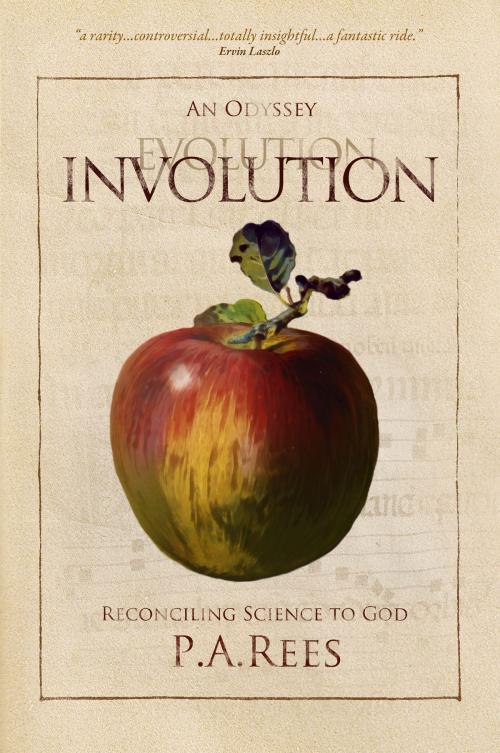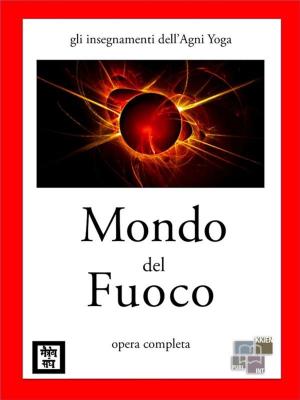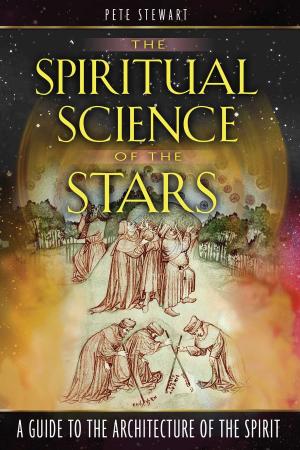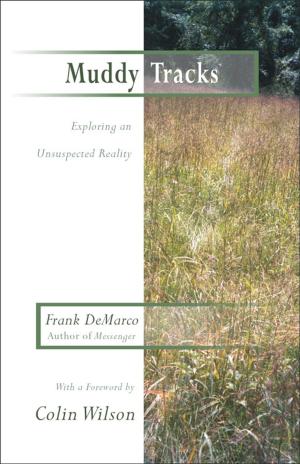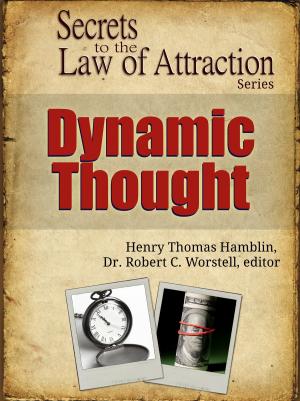Involution
An Odyssey Reconciling Science to God
Nonfiction, Science & Nature, Science, Other Sciences, Philosophy & Social Aspects, Religion & Spirituality, New Age, New Thought| Author: | P.A. Rees | ISBN: | 9780957500211 |
| Publisher: | CollaborArt Books | Publication: | July 4, 2013 |
| Imprint: | CollaborArt Books | Language: | English |
| Author: | P.A. Rees |
| ISBN: | 9780957500211 |
| Publisher: | CollaborArt Books |
| Publication: | July 4, 2013 |
| Imprint: | CollaborArt Books |
| Language: | English |
An original vision in a 'ground breaking' book.
This book has been called '…a brilliant and profoundly erudite epic…a heroic intellectual tour de force…' (by David Lorimer, the Director of the Scientific and Medical Network) and both 'brave…and totally insightful (by Ervin Laszlo) but the book defies description; it breaks all the rules and is unlike any other. It is so comprehensive in its sweep, original in its writing, ground-breaking in its synthesis, that to isolate any aspect is to misrepresent all the others.
That science has reached the end of its habitual road, and must apply itself to the 'hard problem' of consciousness, and a synthesis with spirituality has now become commonplace and the subject of innumerable books.
'Involution- An Odyssey' differs from these by retracing the scientific journey to reveal how and why science has reached the current impasse. Instead of lamenting the consequences of the road less travelled by science, the road of inner, spiritual understanding, it reveals the presence of quiet inspiration all along. The torch bearers that lit the scientific journey: the Keplers, and Faradays that apprehended new relationships, were the scientific mystics, the counterparts of spiritually revealed truth. This work exposes the similarity between religious and scientific genius, by taking the journey afresh.
In the good natured company of Reason and Soul the reader is invited on a journey through the landscape of Western thought. From the emergence of early man on the Serengeti plains, through Mesopotamia, the pre-Socratic Aegean, the Dark and Middle ages to the Renaissance and Enlightenment what the epic journey reveals is the process of Involution, the recovery of evolutionary memory. The inspirations of genius are the knots in the scientific rosary, and other languages—painting and music—keep pace, all equally reflective of that recovery towards all embracing holism.
Science, it is proposed, is the incremental transfer of the memory of evolution encoded in DNA to the collective intellect which has built the scientific paradigm, a model of memory. The entire chronology of scientific recovery is needed to reveal the mirror that involution provides of evolution; from the 'at-one-ment' of primitive man for whom the gods lay in the manifested natural world, through the increasing separation of intellect that came to perceive the natural world as separate, 'outside' the mind of man. Tools and the intellect of collective science have severed man from his true nature. The incremental penetration of collective memory to the dawn of creation has recovered everything in theory, but at the price of a false separation between mind and matter, Man and God.
If this sounds formidable as a proposition, it is because it is. By increments, it rounds up oblivious science into the perennial philosophy. The book traverses the human adventure with swift ease, delivering the history of Western thought with light-hearted poetic economy. Comprehensive footnotes demonstrating 'a rare depth of perceptive scholarship' (Lorimer) are there for those who like their facts; (they take no scientific knowledge for granted) but it is the high poetic vision of the wood and not the trees that is central. Poetry has always been the language of mysticism and this is mystical science, amused, self-mocking and a lot of fun
In the words of Philip Franses (Editor, The Holistic Science Journal)… The genius of involution is not just a mechanism of science relating to the whole but a completely different realisation of the beautiful within living process…re-introduces the aesthetic, beautiful, meaningful process that is poetry into science.'
Thus the reader is invited to share an experience — and not just another theory. 'A poetic narrative of extraordinary subtlety' touches more deeply than that.
This book has been called '…a brilliant and profoundly erudite epic…a heroic intellectual tour de force…' (by David Lorimer, the Director of the Scientific and Medical Network) and both 'brave…and totally insightful (by Ervin Laszlo) but the book defies description; it breaks all the rules and is unlike any other. It is so comprehensive in its sweep, original in its writing, ground-breaking in its synthesis, that to isolate any aspect is to misrepresent all the others.
That science has reached the end of its habitual road, and must apply itself to the 'hard problem' of consciousness, and a synthesis with spirituality has now become commonplace and the subject of innumerable books.
'Involution- An Odyssey' differs from these by retracing the scientific journey to reveal how and why science has reached the current impasse. Instead of lamenting the consequences of the road less travelled by science, the road of inner, spiritual understanding, it reveals the presence of quiet inspiration all along. The torch bearers that lit the scientific journey: the Keplers, and Faradays that apprehended new relationships, were the scientific mystics, the counterparts of spiritually revealed truth. This work exposes the similarity between religious and scientific genius, by taking the journey afresh.
In the good natured company of Reason and Soul the reader is invited on a journey through the landscape of Western thought. From the emergence of early man on the Serengeti plains, through Mesopotamia, the pre-Socratic Aegean, the Dark and Middle ages to the Renaissance and Enlightenment what the epic journey reveals is the process of Involution, the recovery of evolutionary memory. The inspirations of genius are the knots in the scientific rosary, and other languages—painting and music—keep pace, all equally reflective of that recovery towards all embracing holism.
Science, it is proposed, is the incremental transfer of the memory of evolution encoded in DNA to the collective intellect which has built the scientific paradigm, a model of memory. The entire chronology of scientific recovery is needed to reveal the mirror that involution provides of evolution; from the 'at-one-ment' of primitive man for whom the gods lay in the manifested natural world, through the increasing separation of intellect that came to perceive the natural world as separate, 'outside' the mind of man. Tools and the intellect of collective science have severed man from his true nature. The incremental penetration of collective memory to the dawn of creation has recovered everything in theory, but at the price of a false separation between mind and matter, Man and God.
If this sounds formidable as a proposition, it is because it is. By increments, it rounds up oblivious science into the perennial philosophy. The book traverses the human adventure with swift ease, delivering the history of Western thought with light-hearted poetic economy. Comprehensive footnotes demonstrating 'a rare depth of perceptive scholarship' (Lorimer) are there for those who like their facts; (they take no scientific knowledge for granted) but it is the high poetic vision of the wood and not the trees that is central. Poetry has always been the language of mysticism and this is mystical science, amused, self-mocking and a lot of fun
In the words of Philip Franses (Editor, The Holistic Science Journal)… The genius of involution is not just a mechanism of science relating to the whole but a completely different realisation of the beautiful within living process…re-introduces the aesthetic, beautiful, meaningful process that is poetry into science.'
Thus the reader is invited to share an experience — and not just another theory. 'A poetic narrative of extraordinary subtlety' touches more deeply than that.
An original vision in a 'ground breaking' book.
This book has been called '…a brilliant and profoundly erudite epic…a heroic intellectual tour de force…' (by David Lorimer, the Director of the Scientific and Medical Network) and both 'brave…and totally insightful (by Ervin Laszlo) but the book defies description; it breaks all the rules and is unlike any other. It is so comprehensive in its sweep, original in its writing, ground-breaking in its synthesis, that to isolate any aspect is to misrepresent all the others.
That science has reached the end of its habitual road, and must apply itself to the 'hard problem' of consciousness, and a synthesis with spirituality has now become commonplace and the subject of innumerable books.
'Involution- An Odyssey' differs from these by retracing the scientific journey to reveal how and why science has reached the current impasse. Instead of lamenting the consequences of the road less travelled by science, the road of inner, spiritual understanding, it reveals the presence of quiet inspiration all along. The torch bearers that lit the scientific journey: the Keplers, and Faradays that apprehended new relationships, were the scientific mystics, the counterparts of spiritually revealed truth. This work exposes the similarity between religious and scientific genius, by taking the journey afresh.
In the good natured company of Reason and Soul the reader is invited on a journey through the landscape of Western thought. From the emergence of early man on the Serengeti plains, through Mesopotamia, the pre-Socratic Aegean, the Dark and Middle ages to the Renaissance and Enlightenment what the epic journey reveals is the process of Involution, the recovery of evolutionary memory. The inspirations of genius are the knots in the scientific rosary, and other languages—painting and music—keep pace, all equally reflective of that recovery towards all embracing holism.
Science, it is proposed, is the incremental transfer of the memory of evolution encoded in DNA to the collective intellect which has built the scientific paradigm, a model of memory. The entire chronology of scientific recovery is needed to reveal the mirror that involution provides of evolution; from the 'at-one-ment' of primitive man for whom the gods lay in the manifested natural world, through the increasing separation of intellect that came to perceive the natural world as separate, 'outside' the mind of man. Tools and the intellect of collective science have severed man from his true nature. The incremental penetration of collective memory to the dawn of creation has recovered everything in theory, but at the price of a false separation between mind and matter, Man and God.
If this sounds formidable as a proposition, it is because it is. By increments, it rounds up oblivious science into the perennial philosophy. The book traverses the human adventure with swift ease, delivering the history of Western thought with light-hearted poetic economy. Comprehensive footnotes demonstrating 'a rare depth of perceptive scholarship' (Lorimer) are there for those who like their facts; (they take no scientific knowledge for granted) but it is the high poetic vision of the wood and not the trees that is central. Poetry has always been the language of mysticism and this is mystical science, amused, self-mocking and a lot of fun
In the words of Philip Franses (Editor, The Holistic Science Journal)… The genius of involution is not just a mechanism of science relating to the whole but a completely different realisation of the beautiful within living process…re-introduces the aesthetic, beautiful, meaningful process that is poetry into science.'
Thus the reader is invited to share an experience — and not just another theory. 'A poetic narrative of extraordinary subtlety' touches more deeply than that.
This book has been called '…a brilliant and profoundly erudite epic…a heroic intellectual tour de force…' (by David Lorimer, the Director of the Scientific and Medical Network) and both 'brave…and totally insightful (by Ervin Laszlo) but the book defies description; it breaks all the rules and is unlike any other. It is so comprehensive in its sweep, original in its writing, ground-breaking in its synthesis, that to isolate any aspect is to misrepresent all the others.
That science has reached the end of its habitual road, and must apply itself to the 'hard problem' of consciousness, and a synthesis with spirituality has now become commonplace and the subject of innumerable books.
'Involution- An Odyssey' differs from these by retracing the scientific journey to reveal how and why science has reached the current impasse. Instead of lamenting the consequences of the road less travelled by science, the road of inner, spiritual understanding, it reveals the presence of quiet inspiration all along. The torch bearers that lit the scientific journey: the Keplers, and Faradays that apprehended new relationships, were the scientific mystics, the counterparts of spiritually revealed truth. This work exposes the similarity between religious and scientific genius, by taking the journey afresh.
In the good natured company of Reason and Soul the reader is invited on a journey through the landscape of Western thought. From the emergence of early man on the Serengeti plains, through Mesopotamia, the pre-Socratic Aegean, the Dark and Middle ages to the Renaissance and Enlightenment what the epic journey reveals is the process of Involution, the recovery of evolutionary memory. The inspirations of genius are the knots in the scientific rosary, and other languages—painting and music—keep pace, all equally reflective of that recovery towards all embracing holism.
Science, it is proposed, is the incremental transfer of the memory of evolution encoded in DNA to the collective intellect which has built the scientific paradigm, a model of memory. The entire chronology of scientific recovery is needed to reveal the mirror that involution provides of evolution; from the 'at-one-ment' of primitive man for whom the gods lay in the manifested natural world, through the increasing separation of intellect that came to perceive the natural world as separate, 'outside' the mind of man. Tools and the intellect of collective science have severed man from his true nature. The incremental penetration of collective memory to the dawn of creation has recovered everything in theory, but at the price of a false separation between mind and matter, Man and God.
If this sounds formidable as a proposition, it is because it is. By increments, it rounds up oblivious science into the perennial philosophy. The book traverses the human adventure with swift ease, delivering the history of Western thought with light-hearted poetic economy. Comprehensive footnotes demonstrating 'a rare depth of perceptive scholarship' (Lorimer) are there for those who like their facts; (they take no scientific knowledge for granted) but it is the high poetic vision of the wood and not the trees that is central. Poetry has always been the language of mysticism and this is mystical science, amused, self-mocking and a lot of fun
In the words of Philip Franses (Editor, The Holistic Science Journal)… The genius of involution is not just a mechanism of science relating to the whole but a completely different realisation of the beautiful within living process…re-introduces the aesthetic, beautiful, meaningful process that is poetry into science.'
Thus the reader is invited to share an experience — and not just another theory. 'A poetic narrative of extraordinary subtlety' touches more deeply than that.
